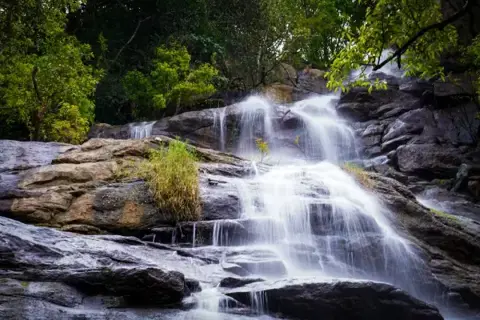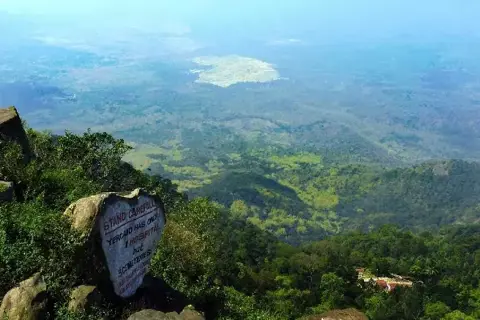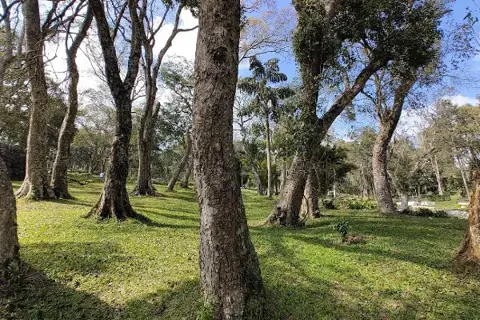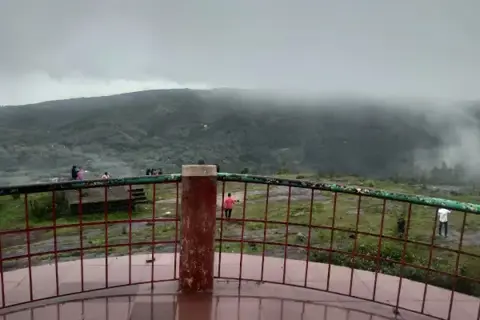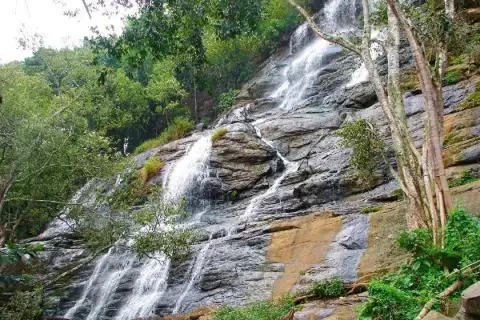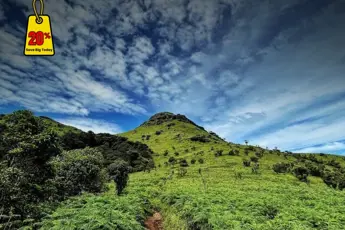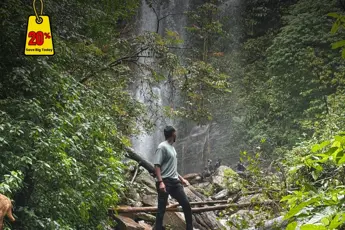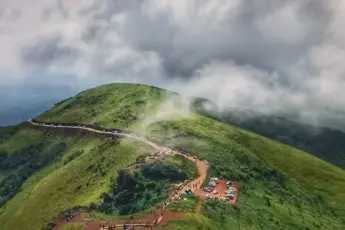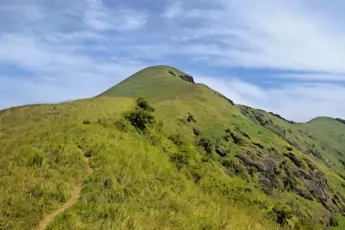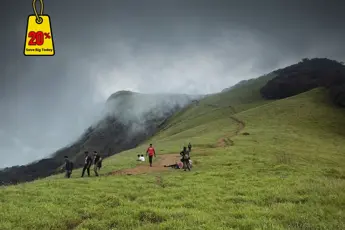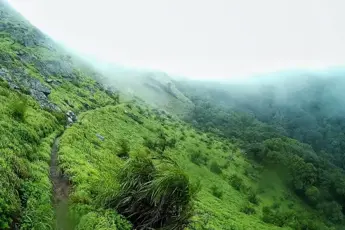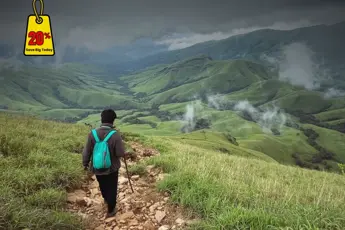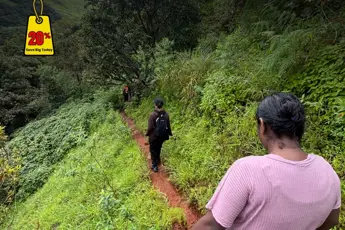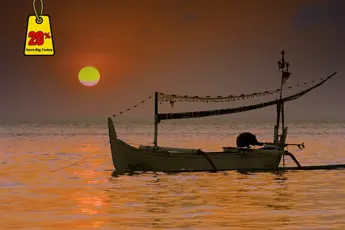Yercaud is a mellow-voiced hill station that is known as the "Jewel of the South," which is nestled in the lush Shevaroy Hills of Tamil Nadu. A change to really nice weather, from the hustle and bustle of the city, is Yercaud with its cool climate, thick green woods, and neat gardens. Unlike the other, more crowded Hill stations of South India, it has been a sanctuary of tranquillity and pure nature and as such is a perfect place to visit for nature lovers, adventure seekers, or simply people looking for a peaceful getaway. The name "Yercaud" is made up of two Tamil words, "Yeri" (lake) and "Kaadu" (forest), which implies the area as lakes encircled by woods. Yercaud Lake, or Emerald Lake as it is also called, is the centre of the town and one of the best places for tourists to see the sunset over the hills while taking a boat ride. The location, besides being a coffee area of cultivation, has also been full of orchards of oranges, spices and fruit trees, which have not only given a distinctive aroma and taste to the air of the region but also become popular products of the area.History of YercaudThe story of Yercaud is very closely linked to the natural riches of the Shevaroy Hills with the cultural traditions of Tamil Nadu. The region was only inhabited by the tribal communities of Malayalis and Vellalas, who were living harmoniously with the forests, while it was under British colonial rule that Yercaud became more popular. The scarcity of natural coffee, spices, and other crops turned Yercaud into a region of economic interest for the Europeans, who were quick to unveil its potential as a plantation centre. The first human settlers were the native tribes who were dependent on shifting agriculture, forest produce, and livestock for their living. Most of their customs, festivals, and the like were related to the worship of nature and the Shevaroy temple, which is dedicated to Lord Servarayan, considered the guardian deity of the hills. This shrine is still one of the main sources of the Tamil culture and away-from-home traditions, and both the community people and tourists come here for it.In the early 1800s, the British learned about the existence of Yercaud’s clean air and fertile land. Actually, coffee cultivation was initiated by Sir Thomas Munro, the Governor of Madras Presidency, around 1820. One after another, several British planters soon followed the idea and came to the region to grow and export coffee beans. What followed was a turning point in Yercaud’s economy, as it was largely dependent on coffee. The area was thriving from the cultivation of a wide range of crops such as oranges, pepper, cardamom, and jackfruit, besides coffee. It is the occasion when David Cockburn, the Scottish collector of the Salem district, and was the promoter of the plantation in Yercaud, has been mentioned the most, during the history of Yercaud from the references to the mostjährige.Nearby Places to Visit from YercaudSalem: Yercaud is less than 30 kilometres away from Salem, which is the closest large city and the commercial centre of Tamil Nadu. Along with the steel industry, mango orchards, and temples that Salem is known for, the city has also been considered the gateway to the Shevaroy Hills. The city is full of historical and cultural landmarks, and the Sugavaneswarar Temple, 1008 Lingam Temple, and the beautiful Mookaneri Lake are some of the places where visitors go for sightseeing.Hogenakkal Falls: One hundred and fifty kilometres away from Yercaud, Hogenakkal Falls is quite often referred to as the "Niagara of India." The river Cauvery creates an amazing view when it falls over the rocks. The visitors can enjoy the very exciting coracle rides, getting the herbal oil massages, which are the local people for their refreshment and feeling the unspoiled nature of the falls, especially during the rainy season, which is the time when the water flow is at its maximum.Kodaikanal: Another hill station in Tamil Nadu is Kodaikanal, which is a famed hill station about 200 km from Yercaud. Kodaikanal, the "Princess of Hill Stations," is known for such places as Coaker Walk, Bryant Park, Kodaikanal Lake, and Pillar Rocks.Ooty (Udhagamandalam): The best-known South Indian hill station of the Nilgiris region is Ooty, which is located 250 km away from Yercaud. Ooty, which can also be recognised as the Nilgiri Mountain Railway (a UNESCO World Heritage Site), botanical gardens, and vast tea estates, is quite different yet very complementary to that of Yercaud’s peaceful charm.Hampi: The distance between Yercaud and Hampi is approximately 300km in Karnataka; Hampi is a place in the Vijayanagara Empire, Karnataka, India, a UNESCO World Heritage Site, with the points of interest being the remains of the empire. The temples, stone chariots, and rocky landscapes are some of the things that draw people interested in history who want to mix cultural and hill station learning while at it.Best Time to Visit YercaudSummer (March to June): Yercaud summer stays quite a bit cooler than the scorched plains of Tamil Nadu and keeps its temperature at around 16°C to 30°C. Therefore, it acts as a great season to head for a short trip if you are coming from a hot city like Salem, Chennai, or even a farther one such as Bangalore. The tourist life gets made more fun by leisure activities such as boating on Yercaud Lake, visiting coffee plantations, and sightseeing at Lady Seat and Pagoda Point.Monsoon (July to September): The monsoon in Yercaud is filled with rains large enough to change it into a green heaven of moderate to large vegetation. Generally, during these times, Killiyur Falls are at their most powerful, allowing a stunning view of the falls. However, the constant rain can be a problem for the travellers who want to have fun outdoors, and the trekking paths may turn into slippery and scary places.Winter (October to February): Winter is the most attended and delightful time to go to Yercaud, with the temperature starting at 10°C at night and the daytime average being 20°C approximately. The cold climate is just right for trekking, camping, and plantation exploration purposes.How to Reach YercaudBy Airport: Salem Airport is the closest point where the plane can land if you are coming to Yercaud (the airport is just 40 km from Yercaud), but the services there are quite limited. So, the more comfortable and convenient choice will be Tiruchirapalli International Airport (165 km) or Bangalore Kempegawa International Airport (230 km), both of which have regular domestic and international flights. Taking a cab or a bus will be the way for tourists to get to Yercaud from the airport.By Train: Salem Junction railway station, which is located just 35 km away from Yercaud, is the nearest one. There are quite a few connecting trains between Salem and major cities like Chennai, Bangalore, Coimbatore, and Hyderabad that run almost all day. When the travellers get out of the station, they will see there is a ghat road with 20 hairpin bends that leads to Yercaud. They can take a taxi or a local bus from the station to the ghat road.By Road: You can drive your car, ride your bike or take a bus and get to Yercaud without any problem if you want to travel by road. About 30 km is the distance from Salem to Yercaud, and the drive through Shevaroy Hills is quite lovely and enjoyable. Daily bus services are available from Salem, Chennai, Bangalore, and other cities in the region through Tamil Nadu State Transport Corporation (TNSTC) and private buses. Besides, the majority of the tourists also prefer the option of self-driving or hiring cabs, as it gives them the freedom of touring the hill station at their own pace.Why Book with escape2exploreWhen exploring the Yercaud and beyond, escape2explore stands out as a trusted name in adventure and experiential travel. Here’s why hundreds of travellers choose us for their getaways:Trusted, Well-Reviewed Local Operator: escape2explore has gained the trust of thousands of content tourists all over India. With persistent positive feedback and an unblemished reputation for delivering quality experiences, we assure you that your experience will be hassle-free, memorable, and value-packed. Our insider local knowledge guarantees that you will always be in safe hands.Seasoned Guides: Our trips are led by friendly, trained, and professional guides who are passionate about the outdoors and your safety. Whether it's a beach trek, a cultural tour, or a spiritual walk through temples, our team knows the terrain, the stories, and how to make each moment count.Safe & Curated Itineraries: Your safety is our number one priority. Our tour packages are thoughtfully crafted with safety measures, researched accommodations, and easy travel arrangements. We take care of the details so you can have the experience hassle-free and worry-free.Unique Experience That You Won't Find Anywhere Else: With escape2explore, you discover more than the tourist attractions. We go off the beaten track with hidden beaches, unusual treks, offbeat cultural destinations, and true interactions.








